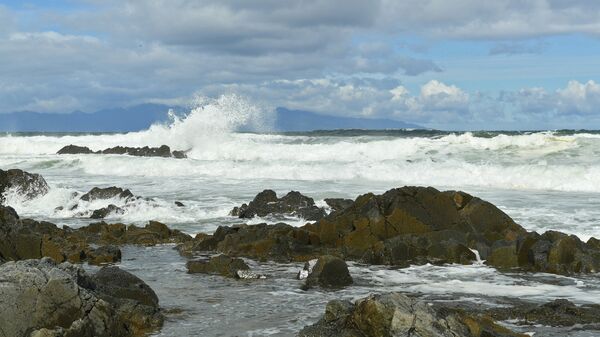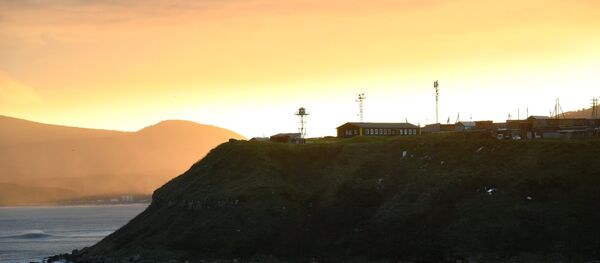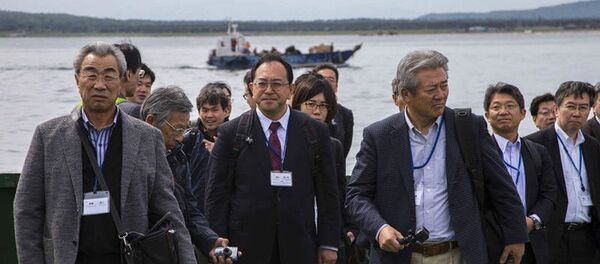The 69-member delegation, including the representatives of 32 private companies, state and municipal structures and headed by Special Adviser to the Japanese Prime Minister Eiichi Hasegawa came to the Southern Kurils by the passenger ship Etopirika on Tuesday. Hasegawa said the Japanese delegation was expected to find some covert opportunities for the cooperation between Moscow and Tokyo.
"The guests have shown interest in cooperation on a wide range of dimensions, proposed by the Sakhalin Region’s authorities. In the energy area, this is about construction of wind-diesel power plants. Such power plants are effective given the high wind on Kurils. They allow saving on the fuel during windy weather and guaranteeing power generation in calm weather. The construction of such universal generation was proposed for the Kurils," the statement said.
The delegation was also interested in transport cooperation and reached agreements in the fishery area, according to the statement.
The Russian-Japanese relations have long been complicated by the fact that the two nations have never signed a permanent peace treaty after World War II ended. This was due to a disagreement over a group of islands, which Russia calls the Southern Kurils and Japan the Northern Territories, which consist of four territories: Iturup, Kunashir, Shikotan and Habomai.
The revitalization of the relations between Moscow and Tokyo started when Prime Minister Shinzo Abe met with Russian President Vladimir Putin and presented an eight-point bilateral economic plan during his landmark visit to Russia’s Sochi in May 2016. The plan covers such areas as oil and gas development, and the modernization of ports and airports in the Russian Far East. In September, Abe participated in the 2016 Eastern Economic Forum (EEF) in Russia’s Vladivostok.
On April 21, Japanese Minister of Economy, Trade, and Industry Hiroshige Seko said the bolstered economic relations between Tokyo and Moscow could be attributed to the trust Abe and Putin have for one another.




